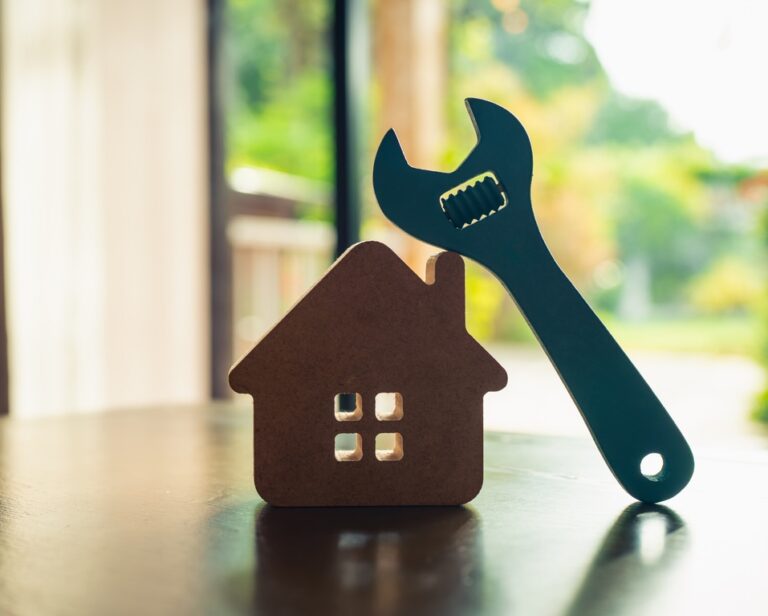Key Takeaways
- Building equity in a home means increasing the portion of the home that you own.
- Equity grows in three main ways: paying down the mortgage, increasing the value of the home through home improvements, and through rising market values.
- You can access the equity you’ve built in a number of ways, including home equity loans and lines of credit, home equity agreements, and cash-out refinancing.
Home equity is the value of your home minus the amount you still owe on your mortgage. It’s essentially the portion of your home that you own. The more of your home you own, the more equity you have. If you own your home outright, then you have 100% equity.
When you build equity, you create financial stability. You can use that equity as collateral on a loan, as a buffer against future financial distress, or to reduce your overall debt. Tools like home equity loans or Unlock’s home equity agreement provide a way to tap that equity that you’ve built. Below, learn about ways to build your home equity and how to access it to meet your goals.
What Does It Mean to Build Equity in Your Home?
Building equity in your home means increasing your ownership stake. The more of your house that you own outright, and the more valuable it is, the more home equity you have.
Building equity means increasing the portion that you own (usually through the down payment and mortgage payments) and increasing the value of the home (either by home improvements or rising market values).
Let’s say your home is worth $500,000. When you bought it, you paid a $20,000 down payment. That’s $20,000 in equity – the portion you already paid for.
Now, suppose you’ve been paying your mortgage faithfully every month for three years, and paid down another $15,000 of your mortgage. You’ve built more equity by increasing the portion of the home you own through mortgage payments.
How Do You Build Equity in a Home?
There are three main ways to build home equity:
- Paying down the mortgage
- Making home improvements
- Rising home values
Paying your mortgage
The simplest way to build equity in your home is to continue to make every mortgage payment in full and on time. You’ll gain a little more equity each month as you pay down the principal. By the time your mortgage is paid off, you’ll own the home in full, giving you 100% equity.
Making home improvements
Another way to build equity is to increase the value of your home. Renovations, upgrades, and other home improvements not only keep your home in good condition, but can make it more valuable, too.
Rising home values
Sometimes, your home will increase in value with no additional action from you. Homes often appreciate over time, though this appreciation varies depending on where you live and economic conditions. Homes in all 50 states grew in value between the second quarter of 2024 and the second quarter of 2025, according to data from the National Association of Homebuilders. Some areas saw modest gains, while others appreciated by as much as 7.5%.
You can use online real estate platforms to get an idea of how much your home is worth now compared to when you bought it.
Do Home Improvements Build Equity?
Yes, home improvements can build equity by increasing the value of the home. An updated home with modern fixtures and amenities is often worth more than an equivalent home that hasn’t been renovated and improved.
Let’s take a kitchen remodel as an example. Suppose your home is worth $500,000, and you remodel the kitchen with all new appliances, cabinets, fixtures, and finishes. If the value of your home goes up $50,000 as a result, you’ve gained equity.
However, you won’t necessarily recoup the total value of the renovations. If you spent $60,000 on the renovations, you might not have regained that total investment, but the value of the home still increased. A kitchen remodel typically recoups between 50% and 96% of the money you put into it.
How Long Does It Take to Build Equity in a Home?
If you take no additional steps, building equity can take a long time – years or even decades, as you pay down your mortgage. For instance, If you put very little down on your home and have a 30-year mortgage, your equity will build slowly over 30 years.
On the other hand, if you paid for your house in cash, you’ll instantly have full equity in the home, because you own the whole thing outright.
How to Build Equity Faster
One way to speed up the process of building equity is to make additional mortgage payments.
Here are a few ways you can do that.
- Pay biweekly: Instead of paying your mortgage once per month, divide the payment in two and pay every other week. You’ll wind up saving tens of thousands of dollars in interest, and you could shave years off your mortgage payment schedule.
- Increase your monthly payment: Some people find it easier to just add a little extra to their monthly mortgage payment each month. For example, if your payment is $2,350 each month, you could round up and pay $2,500 instead. Make sure you direct your loan servicer to apply the extra funds to the principal.
- Apply extra funds when you can: You might not always have extra money for your mortgage payment every month. If you occasionally come into extra money, such as from a tax refund, settlement, or other lump payment, apply some or all of those funds to your mortgage to pay it down faster.
Here’s an example of how much more quickly you can build equity through additional mortgage payments. Suppose you have a $500,000 mortgage, with a fixed rate of 6% for 30 years. By making biweekly payments, you pay $1,498.88 every two weeks instead of paying $2,997.75 once a month. That’s 26 biweekly payments compared to 12 monthly payments, or the equivalent of one extra mortgage payment each year. In this instance, biweekly payments could shave five years and $124,064.63 in interest off your mortgage.
What Can You Do with Equity Once You Have It?
According to a fall 2025 homeowner survey by Unlock, the most common ways homeowners use home equity are for home improvements, paying off debt, and building up savings.
To access the equity you’ve built, you have several options, each with its own advantages and limitations:
- Home equity loan: With a home equity loan, you borrow against your home equity to receive a lump sum payment that you then pay back with interest over time. Home equity loans usually have fixed payments and fixed interest rates.
- Home equity line of credit: A home equity line of credit (HELOC) is a type of revolving credit line. You borrow what you need, when you need it, during the draw period. Then, you pay back what you’ve borrowed during the repayment period, with interest.
- Cash out refinance: A cash-out refi, as it’s commonly known, replaces your existing mortgage with a new mortgage for a slightly higher amount. You receive the difference in a lump sum, and repay the total amount borrowed with interest over the life of the mortgage.
- Home equity agreement: Unlike other ways of tapping your equity, home equity agreements are not a loan. Therefore, there’s no interest and no monthly payments. Instead, you agree to share your home’s future equity in exchange for a lump sum payment now. For example, Unlock offers home equity agreements with flexible credit requirements, no monthly payments, and no restriction on how you can use the funds.
Instead, you agree to share your home’s future equity in exchange for a lump sum payment now. For example, Unlock offers home equity agreements with flexible credit requirements, no monthly payments, and no restriction on how you can use the funds.
Conclusion
Owning a home means you have a large asset that you can leverage to meet your goals and dreams. Simply repaying your mortgage helps build equity over time, but you can supercharge that process by increasing your home’s value through home improvements and additional mortgage payments. With a good chunk of home equity at your disposal, you’ll enjoy extra financial flexibility and security.
FAQs
Q. How quickly can I build equity in a new home?
That depends on a few different factors. For one, the amount you put down on a home creates equity immediately; the bigger your down payment, the more equity. Shorter mortgage terms also help create equity faster. A ten-year mortgage would help you build equity much faster than a 30-year mortgage, for example.
Q. Does paying off my mortgage build equity?
Yes, paying off your mortgage will build equity, because it shifts the ownership stake from the lender to you. The more of your mortgage you pay off, the more of the home you own outright.
Q. Do all home improvements increase equity?
No, not necessarily. Home improvements that are overly tailored to your specific tastes are one example; unpermitted, poorly executed DIY projects are another. If you want your home improvement project to increase your home’s value, focus on projects that are most likely to see a good return on investment, such as kitchen renovations or additional livable space.


